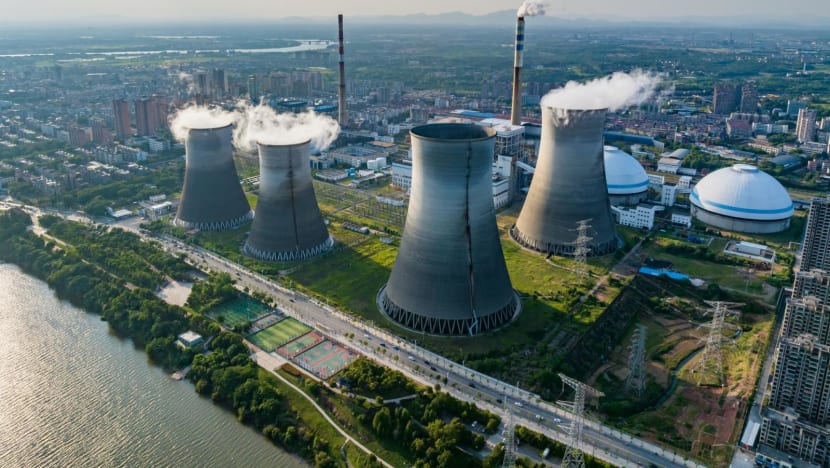Climate Conversations Podcast: Is there a future where nuclear energy is safe and viable?
22 countries pledged to triple nuclear power output by 2050 at last year's climate conference. Can this happen in Southeast Asia?
.jpg?itok=GRdWhhY7)
Hosts Jack Board and Liling Tan bring years of expertise covering climate change and sustainability to this weekly podcast. A one-stop shop for news, views and interviews.
As nations try to find solutions to sustain ever increasing energy needs, nuclear energy is being seriously considered by Southeast Asian countries, including Singapore.
Can experts find a way to deal with the safety and cost issues? Jack Board and Liling Tan talk through the science and scary scenarios.
Jump to these key moments:
- 4:25 High temperatures causing fungal infections
- 11:19 What Japan and Korea are planning
- 15:59 Nuclear power in Singapore?
- 17:16 Indonesia’s ambitious targets

Here's an excerpt of the conversation:
Liling Tan: Let's start with Japan, which has plenty of lessons and expertise on this issue. Now, before Fukushima, nearly a third of Japan's energy needs were provided by its nuclear reactors, around 54 nuclear reactors across 16 locations. Today, nearly all of them are offline and inactive.
The Fukushima disaster really changed things. It put a pause on Japan's nuclear power development. But in recent times though, the government is trying to reignite the industry, in part because there just aren't that many viable alternative energy sources, and it's also expensive to keep on importing fuels ... But overcoming new safety rules and a divided Japanese public are big obstacles that still remain. What about your neck of the woods, Jack?
Jack Board: Thailand is an interested player in the nuclear space ... Nuclear is having a bit of a moment right now, there is some momentum in this space. And actually, Thailand did have a research reactor back in the 1960s, which I only just found out about. Obviously, I wasn't around at that time. But when Fukushima happened, it changed the modern landscape dramatically, and it saw this regional research that Thailand was involved in, grind to a halt.
In September, the Thai government will be releasing a new national energy plan, which runs through to 2037. We always closely watch these to get an understanding of the energy pipeline in Thailand and in other countries. And it's expected that there will be small nuclear reactors featured, and this current government seems keen on the research front to do more.
You raised this (about a) divided public - it's a divided issue here too. There was an incident last year that you probably remember in the newsroom, Li Ling, this radioactive cylinder that went missing from a power plant. And everyone in Thailand was like, watch out for the radioactive cylinder! It could be literally anywhere. And I think they ended up saying that it had been crushed at a steel mill.
Liling: How do you lose a radioactive cylinder though? It's not like misplacing your car keys, right? Or your homework? Did someone just walk out with it, throw it in a recycling bin?













